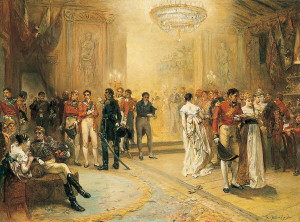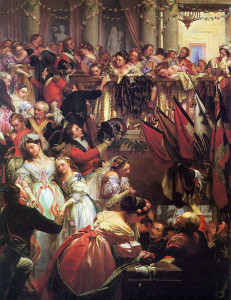Are you watching Emma Approved? The people who brought you the wildly popular Lizzie Bennet Diaries and the ill-conceived Welcome to Sanditon have taken on Jane Austen’s Emma and are 56 web episodes into a modernization of the story. Although I don’t feel Emma Approved has the appeal of the Lizzie Bennet Diaries, it’s doing a pretty good job of moving the story into the 21st Century. There’s a good cast. Alex Knightley is pretty fanciable. Maddie Bates is hilarious. Harriet Smith is an excellent combination of shy and aspirational (and I’m waiting for Robert Martin to come back).
The sticking point for me is Emma Woodhouse. I know she’s a character of whom Jane Austen said, “I am going to take a heroine whom no one but myself will much like.” If I recall my first reading of the book, I thought she was right. I didn’t like Emma very much. But she grew on me, through the course of the book and through each subsequent reading. I’ll admit that she’s not Jane Austen’s most likable heroine. I’m guessing that’s Lizzy Bennet (raise your hands). Apart of Lady Susan, whom we really can’t identify as a heroine, she might very well the least likable. (Although my vote here goes to Marianne Dashwood.)
But Emma Approved Emma is not really growing on me. Perhaps its because she’s too perky. Perhaps it’s because she hasn’t been brought low yet. Perhaps its the actress. I really want to like her. I like what’s being done with this adaptation. I keep watching in the hope that she’ll pull it out yet (and because I think Alex Knightley is adorable). So… what about you? Are you watching? Does it work for you? Do you have reservations? Have you seen the preceding Web series (I refuse to call them “webisodes.)








